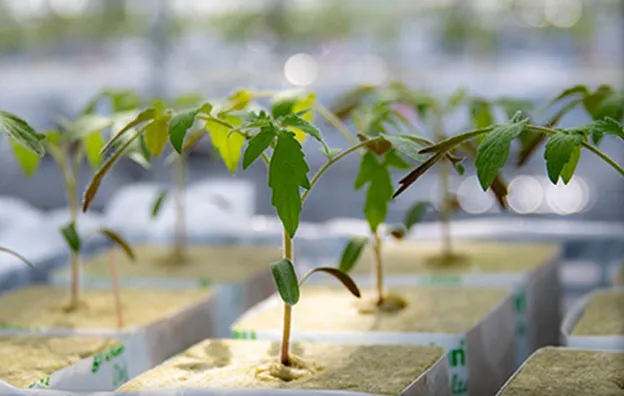A tomato made with CRISPR/Cas9 has been approved for growing and consumption in Japan. The tomato "Sicilian Rouge High GABA” was developed by the University of Tsukuba and startup Sanatech Seed. Thanks to a tweaking of the genes, the variety features five times the normal amount of GABA (Gamma-AminoButyric Acid). "GABA is one type of amino acid that has recently been attracting attention as a functional component. GABA is expected to assist with relaxation and help to lower blood pressure," the researchers explain.

In April 2018, Sanatech was established as a venture from the University of Tsukuba, to commercialize genome-edited tomatoes that accumulate high amounts of GABA. The word 'Sana' in the company name means health in Latin. "We hope to make people healthier with our product," they say.
Gene editing is a controversial topic in the fresh produce industry and GMO products are forbidden in many countries. CRISPR-Cas however is different. This is a technique that allows changes to be made in the DNA of viruses, bacteria, cells, plants and animals. The CRISPR-Cas gene editing technique lets a selected gene be cut very precisely or replaced by another gene. This technology makes it possible to precisely edit only the target genes without leaving any foreign DNA.
"It is a breakthrough technology with broad applications in life sciences and its inventors received the Nobel Prize in Chemistry this year," the team with Sanatech says. "This technology can be applied to plant breeding, making it more efficient and has great potential for the development of the next generation of crops to improve food quality in terms of nutrition, processing, storage, and health (e.g., reducing allergic reactions), while ensuring sustainable food security."

Japanese rules
Last year, new regulatory guidelines for products developed using genome editing technology were established in Japan. Under these guidelines, products like the Sicilian Rouge High GABA tomato are not considered GMOs - although engagement with the regulatory agencies prior to commercialization is requested.
γ-Aminobutyric acid (GABA) is an amino acid that is found in animals, plants, and bacteria. "In humans, GABA plays a major role in neurotransmission. In addition, when taken orally, it is effective in reducing elevated blood pressure and relieving stress."
The team at Sanatech explain how this is the world’s first direct consumption genome-edited tomato. "The Sicilian Rouge High GABA tomato contains high levels of GABA which is a functional component providing various benefits to human health, such as lowering blood pressure and producing relaxation effects."
First home growers
The Sicilian Rouge High GABA will be available as seedlings for home garden use at first. Growers have to apply for it on the Pioneer EcoScience website and have to agree upon joining an online group on cultivation, growing and eating the tomatoes by themselves and refrain from reselling. The recruitment period is until the end of March 2009, and the seedlings will be provided from mid-May to mid-June 2021. Shipping will be decided by careful selection.
"In order to distribute the fruit to the market like conventional tomato varieties, we need to start mass seed production and selling them to growers. That needs time and space for growers, so it will be some time before consumers see fruit products in the supermarket."
Genome-editing indication
Sanatech Seed indicates products that were developed by using genome-editing technology. The seedlings and the fruits distributed in the future will be labeled with a mark that includes the words “This product was developed by genome editing technology” and “The notification was submitted to MHLW & MAFF”. The products will also be marked with a QR code that will take consumers to the Sanatech Seed’s website where consumers can find details information about the product.
The team will continue to share information on genome-edited crops, they say. "We hope that our products, which have been developed using cutting edge technology, will be useful for your health. We will continue our research and development under the concept of “For Tomorrow’s children and the Earth” as the first company to sell genome-edited products in Japan and the genome-edited vegetable products in the world."
For more information:
Sanatech
info@sanatech-seed.com
www.sanatech-seed.com
